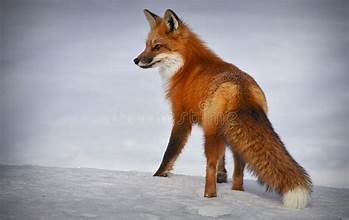2023 Dedh Trei Hans ha Whegh warn Ugens
De Merher, nessa warn ugens mis Du
Wednesday, 22nd November
Dedh 320 my a gavas nebes teleryow henwyn gen "Tre" ha best dov. Hedhyw my a whilas henwyn gen "Tre" ha best gwels. Na wruga vy trovya saw bestes gen "Nans" ha geryow an par na. Terweythyow ma dew hanow dhe vest, rag sampel "lowarn" ha "lostek". Terweythyow ma udn hanow rag dew vest.
On Day 320 I found some place names with "Tre" (farm) and a tame animal. Today I searched for names with "Tre" and a wild animal. I only found animals with "Nans" (valley) and words of that sort. Sometimes an animal has two names, e.g. "fox" and "the one with a tail". Sometimes there is one name for two animals.
Wild Animal Place Names
Notice that these tend not to be associated with terms, such as “Tre”, meaning some sort of habitation or farming activity.
Instead see landscape features, such as
Nans = Valley (x7)
Pol = Pool (x5)
Penn = Headland (x2)
BUCKLAWREN (Boklouwern c1200)
Baghlowern “fox’s corner”
MILLEWARNE (Maenlewern 1289)
Men Lewern “foxes’ stone”
LANLAWREN (Nanslowarn 1356)
Nans Lowarn “fox valley”
ZAWN POLOSTOC (no date)
Sawen Por’lostek "fox cove chasm"
From these, we get lowarn (m) = fox > lewern (pl.)
And lostek (nickname for fox) = with a tail (lost = tail)
POLBROCK (Polbrogh 1321)
Polbrogh “badger’s pool”
BURLORNE PILLOW (Bodlowernpolbrok 1430) Boslowen Polbrogh “badger’s pool at Burlorne”
VRO, The
Brogh “badger”
From these, we get brogh (m) = badger
(dorgy does not seem to feature in placenames).
Several other badger placenames are of English origin.
NANKERVIS (Nanskerwes 1284)
Nans Kerwys “stags’ valley”
GUNHEATH (Goenheth 1310)
Goon Hedh “red deer’s downs”
PENCARROW (Egloshayle) (Pencarou 1314)
Pencarow “stag’s top”
LANCARROW (Nanscarou 1338)
Nans Carow “stag’s valley”
LANJETH (Nansyrgh 1356)
Nans Yergh “roebucks’ valley”
CARRANCARROW (Nankerou 1366)
Nanscarow “stag’s valley”
NANCARROW (Nanskarow 1476)
Nans Carow “stag’s valley”
PENARROW POINT (Pencarreu point 1597)
Penn Carow “stag’s headland”
HENSBARROW DOWNS (Goenheyth 1650)
Goon Hedh “stag's downs”
CHYBUCCA (Guenbuck 1714)
Goon Bogh “buck’s downs”
KERROWE (Zennor) (Nancarrow 1738)
Nanscarow “stag’s valley”
CARN BEAN (Carnvean 1700; Carn Yorth 1852)
Carn Bian/ Carn Yorgh “little tor/ roebuck’s tor”
PENCARROW HEAD:
Penn Carow "stag's head"
PORN BOE
Porth an Bogh/Por’n Bogh “the buck’s cove”
SHARK’S FIN (Sennen) (Bomear n.d.)
Bogh Meur “great buck”
From these, we have carow (m) = stag > kerwys (pl.),
yorgh (m) = roebuck, bogh = buck, hedh = deer.
Not all animals in place names are of the furry/hairy variety.
POLYPHANT (Polefant c1170)
Pollefant (OC) “toad pool”
POLKANUGGO
Polcronogow “frogs’/toads’ pool”
We have lefant = toad or frog (Old Cornish)
and kernogow (pl.) > cronek = toad
Other toad/frog place names have English origin.


No comments:
Post a Comment